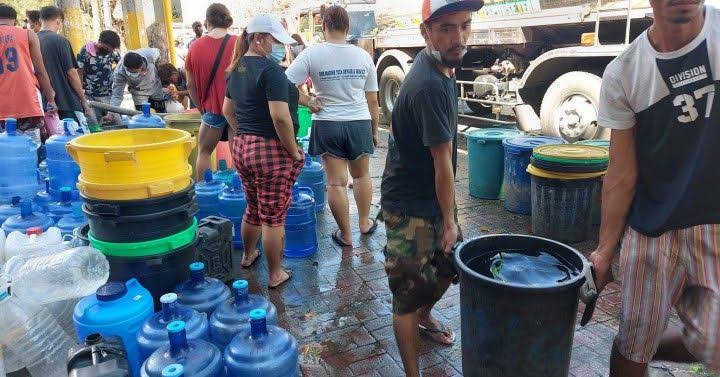A round-the-clock water supply for Iloilo City could still be four years away — a timeline city officials call “unacceptable” for one of the country’s highly urbanized hubs.
Metro Pacific Iloilo Water (MPIW) admitted that only 30 percent of the city’s 180 barangays currently enjoy a steady 24/7 supply, leaving most residents dependent on rationing or costly tanker deliveries.
The disclosure came during a radio interview with City Councilor Romel Duron, chairman of the Committee on Energy and Public Utilities, who voiced frustration over the pace of improvement.
“According to MPIW, hopefully by 2029 the water flow will finally be 24/7 — that’s if you already have a connection by then,” Duron said, stressing that such a delay is “unacceptable for a city of Iloilo’s status.”
Many residents, Duron noted, still buy water from tankers at ₱1,500 to ₱2,000 per delivery — a steep cost for families in water-scarce areas.
Big projects, long timelines
MPIW is studying plans to tap the Jalaur River Multi-purpose Project II for additional supply, but Duron said the feasibility study “offers no assurance” and urged residents to keep looking for their own solutions in the meantime.
The company is also building a P5-billion desalination plant in Ingore, La Paz, to produce 65 million liters of potable water daily.
While the facility could boost supply, Duron warned it could also raise water rates due to the high cost of desalination.
More immediate fixes, he stressed, should target the city’s leaky pipelines.
MPIW has so far replaced only 20 kilometers out of 235 kilometers of defective pipes, with completion projected in 2026 — a pace Duron described as “too slow.”
“The pipelines they are working on are the reason why we summon them two or three times a year to ask for updates,” the councilor said.
Duron urged the city not to rely solely on MPIW, which also serves seven municipalities outside Iloilo City, and called for more investors in the water sector.
“If Metro Pacific cannot handle the entire Iloilo City, aside from the seven municipalities they are also serving, then we should seek help,” he said.
Despite repeated hearings and promises, Duron said the explanations from MPIW have remained largely unchanged.
“We are hoping against hope,” he added.IMT







